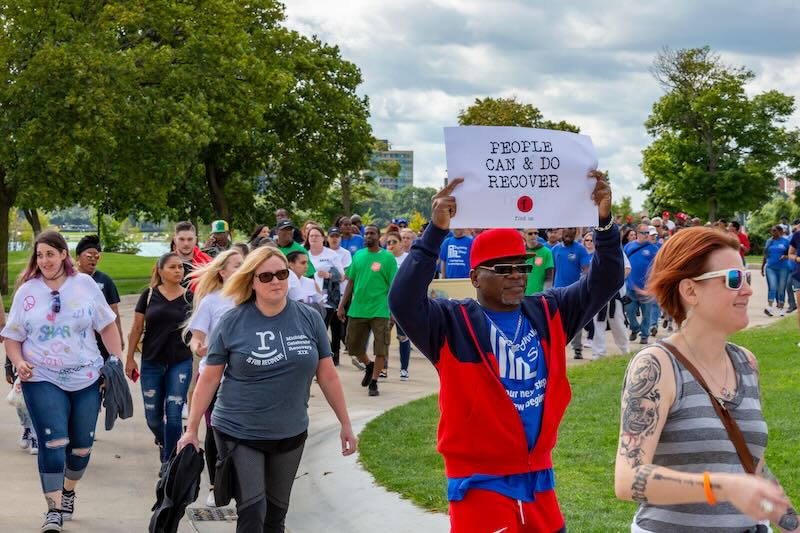
Cascade Party
A new path in Washington State politics.

A new path in Washington State politics.
Addiction Crisis
—Local Advocate's Reading of Executive Order—
—The meaning of the word "only"—
—Rejecting Caricature of Housing First—

By Krist Novoselić (January 5, 2026)
Lisa Daugaard helped create Law Enforcement Assisted Diversion (LEAD), a program that diverts low-level offenders from the criminal justice system into the social services system. She joined Seattle's Community Police Commission in 2013, first as co-chair, then as a commissioner. As of 2019, she is Executive Director of the Public Defender Association.
Daugaard was interviewed regarding the EO on the podcast SEATTLE NICE: Read the Fine Print Before Freaking Out.
The Seattle Nice hosts asked if Trump's order ended housing first? Daugaard answered, “It’s the opposite.”
Daugaard applied her legal training to the EO saying, “a careful reading makes it clear that people in HUD and HHS had a hand in crafting it to make sure it does not have devastating consequences.”
This view is keen to the EO's Sec. 2, which seeks to, “ensure that discretionary grants issued by the Substance Abuse and Mental Health Services Administration for substance use disorder prevention, treatment, and recovery fund evidence-based programs and do not fund programs that fail to achieve adequate outcomes, including so-called ‘harm reduction’ or ‘safe consumption’ efforts that only facilitate illegal drug use and its attendant harm.” [My emphasis]
According to Daugaard, the word "only" was inserted on purpose and, “written by someone throwing us a pass.”
“It’s a trap to object to this.”, and adding the word “only” implies what Duagaard refers to as affecting the “caricature” of the Harm Reduction / Housing First treatment model.
This is because no program only facilitates illegal drug use. Daugaard said, “If it does, it should be changed.”
Daugaard applies her expertise to other aspects of the EO. The part about ending the distribution of drug paraphernalia is, “unfortunate, but not the end of the world.” This is, she says, because some programs already refuse this approach.
Section 5 of the EO could result in the prosecution of providers. There is the potential for sensationalist activists filming an OD or drug use at a Housing First facility; and this got-cha could be submitted as evidence of a provider breaking the law. Daugaard says this scenario has always been the case, however, prosecutorial discretion has given service providers latitude in the course of their work.
It’s best to listen to the Seattle Nice podcast yourself to get a better picture. I am in the process of learning this issue, and appreciate the reminder of not looking at Housing First in terms of drug den / hell-hole caricatures. At the same time, I know people who went through a deferred prosecution. They chose treatment over jail and it changed their life for the better.
I have read perspectives which criticize Housing First as slow to build and expensive. This approach to the crisis could be affecting the increase of unsheltered in our state. Instead of an exclusive apartment or hotel room, perhaps basic shelter like dorms and group homes could be better at getting more people inside and into treatment?
My understanding of statements made in the interview is the EO can still apply the low barrier model to shelter. This means, addicts can still be inside on street drugs, as Duagaard states, “to ensure they stay alive and stay connected with a continuum of care.”
A July 26, 2025 Seattle Times story headline read, WA officials rebuke Trump’s tough-on-homelessness executive order.
Surprised? This is our leadership offering the usual rote reaction to anything coming out of the Whitehouse.
The status quo is failing
An AI word search tells us,”King County has spent approximately $5 billion on homelessness and housing programs over the past decade, with significant increases in funding in recent years. In 2023 alone, the King County Regional Homelessness Authority’s (KCRHA) budget was about $253.3 million, reflecting a substantial rise in financial commitment to address the crisis.”
KCRHA quietly updated their latest Point-In-Time count of homeless individuals in mid-April. The latest count revealed that 16,868 people are suffering from being homeless in the county. This is a 3% increase from last year’s count of 16,385, and a 26% increase since 2023.
Lisa Daugaard admits her view of the EO is strategic. She urges service providers in the homelessness / addiction space to not fall into the trap of being portrayed as a caricature of chaos saying, “We are not that.” Her idea is to receive the pass from the clued-in people who drafted the language of the Executive Order and go for the federal funding it mentions. “We need more resources”, she repeated throughout the interview.
The Seattle Nice panel mentioned many providers could see this as “capitulation to Trump.” Here is another trap; one that Democrats and others in leadership and political advocacy have already boxed themselves into. Their rhetoric has created a situation where it would be politically tough to accept federal money; even though, as Daugaard states, it could fund existing programs addressing the unsheltered / addiction crisis.
Lisa Daugaard is realistic. The next president will take office in January of 2029. Being rational and resourceful is not capitulating. It’s like the lyrics to the Cheap Trick song, “Surrender, but don’t give yourself away.”
Krist Novoselić is Cascade Party Chair. He serves on the board of directors in an at-large position.
(Image: Alamy)